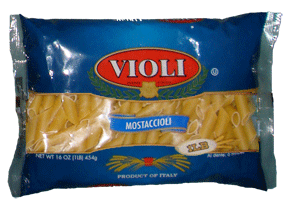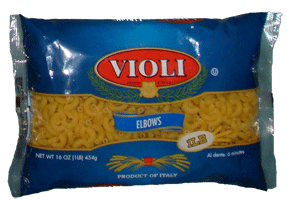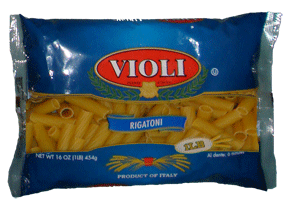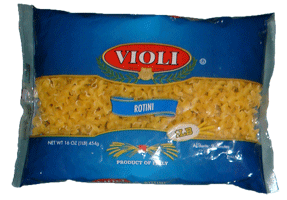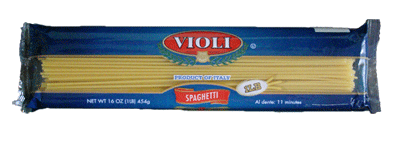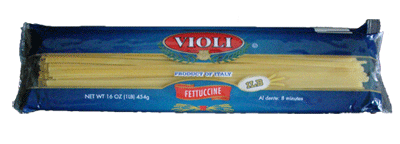A Few Words About Our Pasta.


 Violi Pasta is made with the highest quality Durum Wheat Semolina.
Violi Pasta is made with the highest quality Durum Wheat Semolina.
The finished product that you can admire in its beautiful packaging shows the rich ivory color approaching yellow.

 Only the finest selection of quality ingredients combined with traditional methods of production will become Violi Pasta.
Only the finest selection of quality ingredients combined with traditional methods of production will become Violi Pasta.
Our final goal, as with all our line of products, is to offer the consumer the highest quality foods at an affordable price. That's it.
Al Dente: Making Pasta Perfect.

 There's more to cooking pasta than tossing it in the pot.
There's more to cooking pasta than tossing it in the pot.
Perfectly cooked pasta is al dente, an Italian term referring to well-cooked pasta's still toothsome nature. (In other words, most folks prefer pasta with a bit of texture left, in lieu of boiling it until it's completely soft.)
If you want to learn to think outside the box (that is, without the directions off of the bag of pasta), here are a few tips to keep in mind:
- Use a big enough pot. Pasta can expand in volume up to three times its original size, so be sure to make room.
- Use lots of water-at least 2 quarts for each ½ pound of pasta.
- Season pasta's cooking water generously with salt. (Don't worry, it won't all soak into the pasta. A generous amount of salt will simply yield more savory, flavorful results when the pasta is cooked.)
- Test for doneness early and often. Basically, you want the pasta to feel firm and slightly resistant (almost springy) when you bite into it. If it sticks to your teeth when you chew it, it's not ready.
- Remember that pasta will continue to cook after it is drained so you should stop cooking thin pastas like vermicelli just before it reaches the al dente stage. The same is true for pasta that will be baked with a sauce such as lasagna.
- Don't rinse your pasta after it's been drained. You'll risk losing the flavorful starches that will help sauces cling to it later.
- Stir often to make sure that the pasta doesn't stick together.

